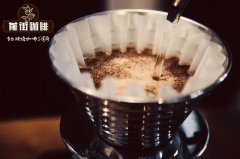Where is the origin of Kenyan coffee beans? Kenyan coffee is sour and unsour, a sour aroma that surrounds the beam for three days.

Professional coffee knowledge exchange more coffee bean information please follow the coffee workshop (Wechat official account cafe_style)
Qianjie-Kenyan Coffee introduction
Kenya is an important force in East Africa in the coffee world, and it is a leader in both its coffee quality and its business strategy. The excellent coffee produced here has a clear, bright and rising flavor throughout the front and back of the tongue. The flavor is complex and rich, with very interesting fruit flavors (berries, citrus) and even spicy flavors. Clean, bright, rare wine (grapefruit) quality.
Most of Kenya's coffee crops are grown in the fertile, loose, acidic volcanic red soil of the highlands north and east of Nairobi. There is plenty of light and good drainage, and the elevation is between 1400 and 2000 meters. Because the higher the altitude, the greater the temperature difference between day and night, the ripening cycle of Kenyan coffee is longer than that of low altitude, so it has higher density and rich flavor. Kenyan coffee, known as the "Cup of connoisseurs" (Connoisseurs' Cup), is famous for its rich aroma, vibrant acidity, full mellowness and elegant red wine flavor.
Double fermentation (Double Fermentation): in addition to the special varieties, the Kenyan treatment is also unique. This treatment is different from other washing methods in Central and South America. The washing tank has two layers. In the evening, the defective products of the harvested coffee fruit are removed. After removing the peel, the sticky shell beans are poured into the top fermentation tank. After fermentation all night (there is also dry body fermentation that does not enter the pool water), the shell beans are washed once in the morning, most of the pectin is removed, and then into the lower purification pool, secondary fermentation, the circulating water should be renewed every few hours to avoid smelly. Then the water system ditch is introduced to remove the residual pectin.
The second fermentation plus rinsing takes 36 hours, which is not over. Rinse the shell beans and soak them in the water tank for more than 12 hours. Washing in Kenya takes at least 48 hours, or even as long as 20 hours, which is several times longer than that in Central and South America.
Kenya's coffee producing areas are most famous for their seven major producing areas, Thika, Kirinyaga, and the western side of Mount Kenya (Mt. Kenya West, Nyeri, Kiambu, Ruiri and Muranga.
Among them, the foothills of Mount Mt.Kenya and Aberdare are the main producing areas.
Knowledge: Kenyan coffee producing areas are mainly distributed in Central Province, Eastern Province, Western Rift Valley Province and Nyanza Province.
In short: Qianjie is a coffee research hall, happy to share the knowledge about coffee with you, we share unreservedly just to make more friends fall in love with coffee, and there will be three low-discount coffee activities every month. The reason is that Qianjie wants to make more friends drink the best coffee at the lowest price, which has been Qianjie's tenet for 6 years!
END
Important Notice :
前街咖啡 FrontStreet Coffee has moved to new addredd:
FrontStreet Coffee Address: 315,Donghua East Road,GuangZhou
Tel:020 38364473
- Prev

What is the coffee silver skin? does the coffee bean silver skin affect the taste? it's just between the lines.
Professional coffee knowledge exchange more coffee bean information please pay attention to the coffee workshop (Wechat official account cafe_style) front street-coffee silver skin introduced sun beans in the roasting process, the surface of silver skin, in the water discharge at the same time peel off, the sun outside the silver skin of beans is relatively more, more thoroughly when roasting, so relatively less when grinding. Of course, it is directly related to the baking degree.
- Next

What are the characteristics of Kenyan coffee varieties? why do Kenyan AA coffee beans taste so sour?
Professional Coffee knowledge Exchange more information on coffee beans Please follow the front street of Coffee Workshop (official Wechat account cafe_style)-Coffee Kenya introduces the Kenyan government takes coffee industry very seriously, where it is illegal to cut down or destroy coffee trees. The coffee buyers in Kenya are all world-class quality coffee.
Related
- Beginners will see the "Coffee pull flower" guide!
- What is the difference between ice blog purified milk and ordinary milk coffee?
- Why is the Philippines the largest producer of crops in Liberia?
- For coffee extraction, should the fine powder be retained?
- How does extracted espresso fill pressed powder? How much strength does it take to press the powder?
- How to make jasmine cold extract coffee? Is the jasmine + latte good?
- Will this little toy really make the coffee taste better? How does Lily Drip affect coffee extraction?
- Will the action of slapping the filter cup also affect coffee extraction?
- What's the difference between powder-to-water ratio and powder-to-liquid ratio?
- What is the Ethiopian local species? What does it have to do with Heirloom native species?

